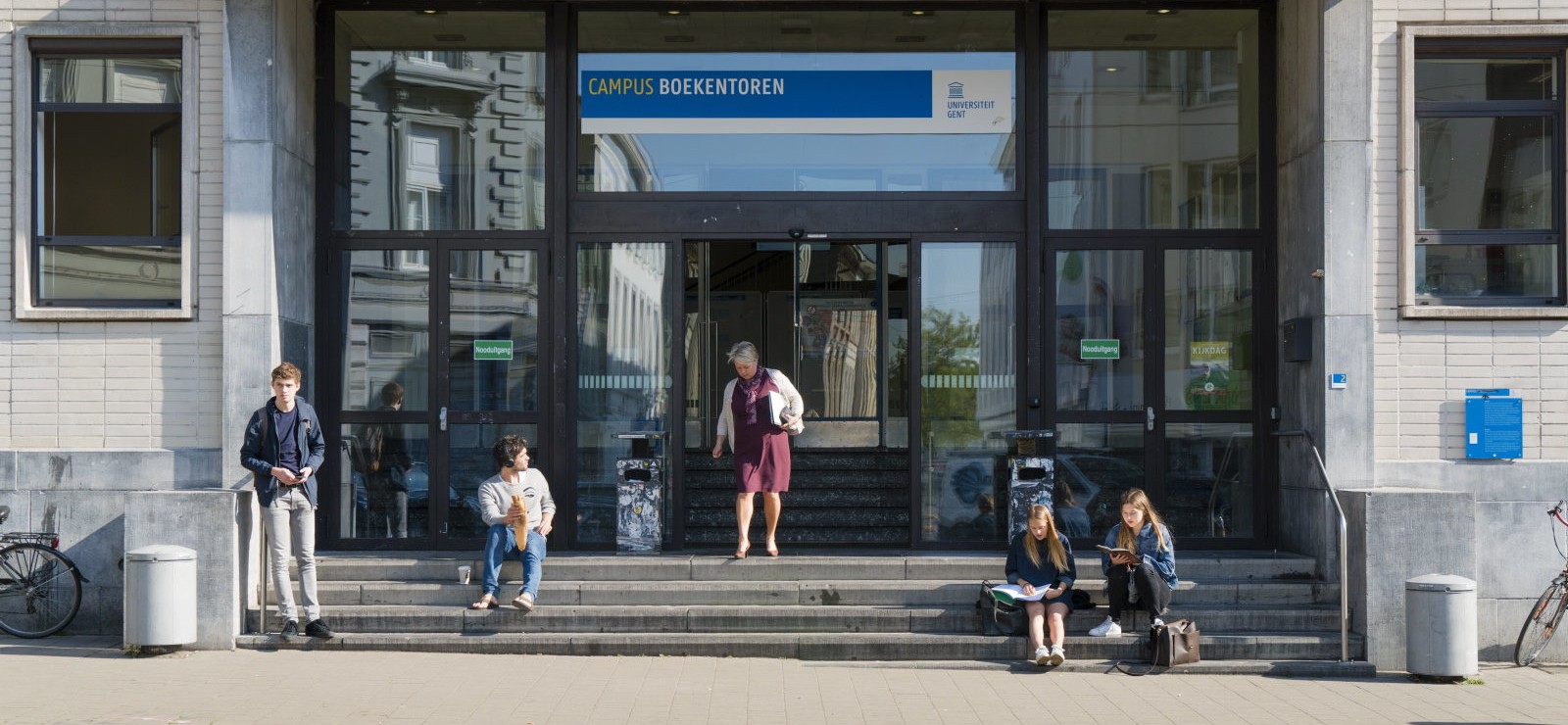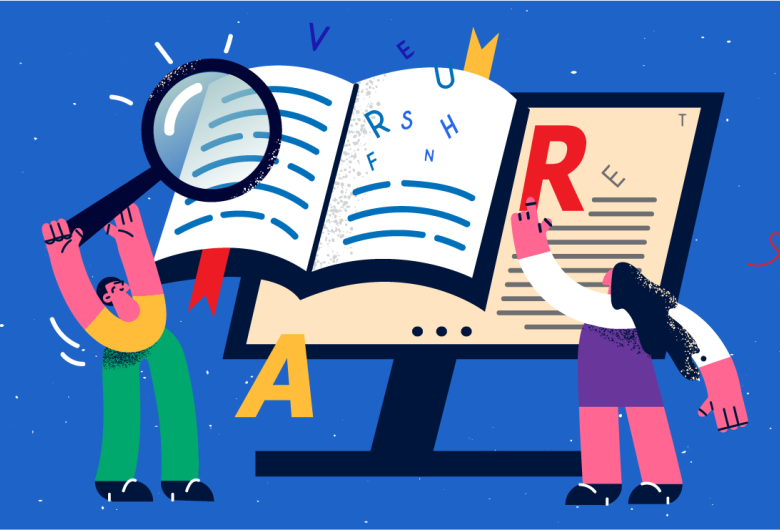Good news for language programmes: enrolment records show that more students are choosing to study languages, literature and culture at Ghent University, after a number of years of declining interest in the subjects.
Last year, newspapers painted an alarming picture of the declining popularity of language programmes among students. At the start of the current academic year, we see a slight reversal in that trend: once again, more first-time bachelor students have enrolled at the Faculty of Arts and Philosophy at Ghent University compared to the previous year.
Which programmes are on the rise?
Linguistics and Literature and Applied Language Studies, especially, have attracted a large number of students. Study programmes such as African Languages and Cultures and Eastern European Languages and Cultures have also garnered more enrolments this year. Oriental Languages and Cultures is the only study programme that has seen a slight decrease in enrolments.
Why are they choosing language studies?
Professor of Dutch Literature Lars Bernaerts emphasises the importance of the rise in popularity: “We hope that this signals a trend reversal because society and education are in dire need of people that have a background in languages. We look forward to training new generations to become critical and proficient experts in languages, literatures and cultures.”
Language studies are about so much more than just working on your language proficiency. You also learn about history, culture, literature and you graduate with a broadly applicable skillset. Learning a language opens doors: any number of possibilities become available to you afterwards. Many graduates find a job in education, at a communications department at a(n) (international) company, in the cultural sector, as a translator or interpreter, or start working at media companies as a journalist, editor, digital marketeer, …
These students share why they’re so enthusiastic about language studies:

Bauke Deschodt, a student in Applied Language Studies (Dutch, French, German):
“Languages fascinate me. Not only because of pronunciation or grammar, but also the history and culture that accompanies them. I chose Dutch, French and German because they’re the three national languages of Belgium. French and German are completely different languages, but I find them equally intriguing.”

Jakob Bogaert, student of Linguistics and Literature (French & Spanish):
“Languages are important, and you can use them in any job. Personally, I’m most interested in the link with communication. I chose French and Spanish because they seem like a great challenge to learn.

Mathias Svacina, student of Applied Language Studies (Dutch, French, German):
“I’m from a multilingual family: my dad’s of German descent, but my family also has Czech roots. This is why I’ve always been fascinated by languages: if you have a good knowledge of languages, the world’s your oyster. I love French, especially: it’s such a beautiful language.”
Read also
One master, many directions: applied language studies
Four alumni look back on their education and the direction they eventually took. What started on the same road led to other places. Alexander, Nikki, Bart and Eline all studied applied language studies. The passion for languages is still there, but each of them expresses it in a different way in their jobs.
Read also
Identifying emotions in texts, a language technology marvel
With the aid of AI, Ghent-based company AlfaSent is able to recognise emotions in texts. It’s a prime example of language technology, an area that is rapidly gaining ground. Founder and UGent alumna Ellen De Geyndt: “I’ve always been interested in both language and technology but I wasn’t aware that I could combine the two.”
Are classical languages still of any use?
With clock-like regularity the debate pops up about whether studying Greek and Latin is still useful. Some claim that classical languages are useless on the job market. For others, they are the foundation of our society. What should we think about that? We asked hellenist Evelien Bracke and got a nuanced answer.
Ghent University to train the language technologists of the future
At the Faculty of Arts and Philosophy, starting next academic year, you can opt for an educational track to become a language technologist. A sought-after profile on the job market, so it seems.
Cruel summer? Not for this UGent’er
This summer it was hard to miss: at Ghent University you would soon be able to take a “Taylor Swift-class”. A storm of reactions blew up, the crackle could be heard all the way to the United States. In the eye of the storm: professor Elly McCausland and her elective course Literature (Taylor’s version). “It was a lot, but I’ve grown quite a thick skin.”





